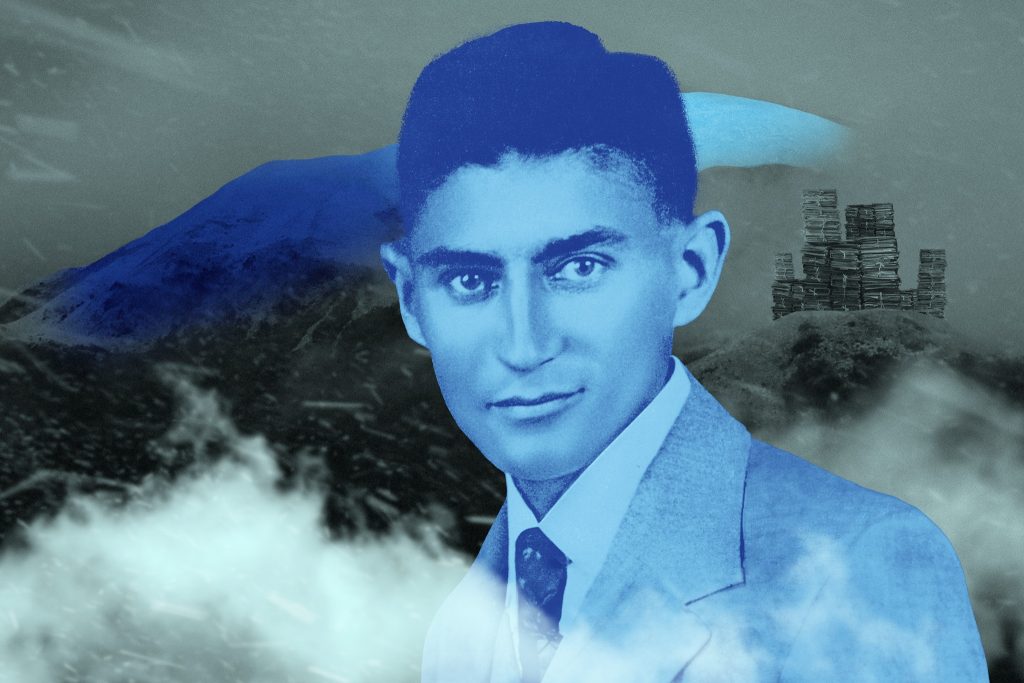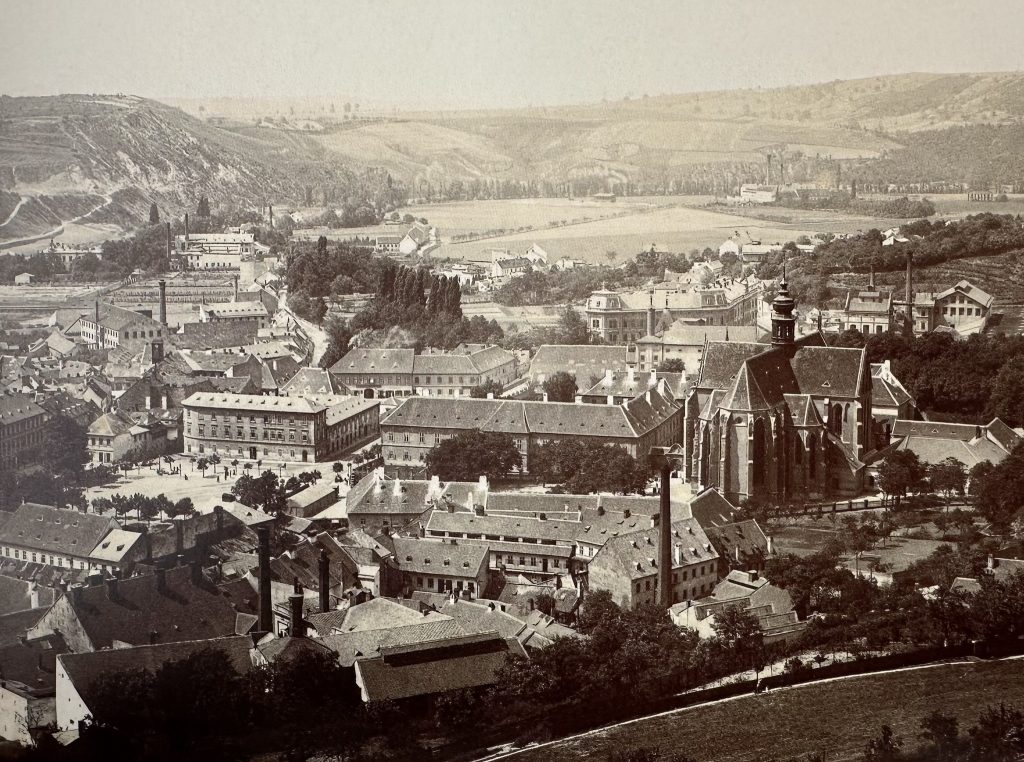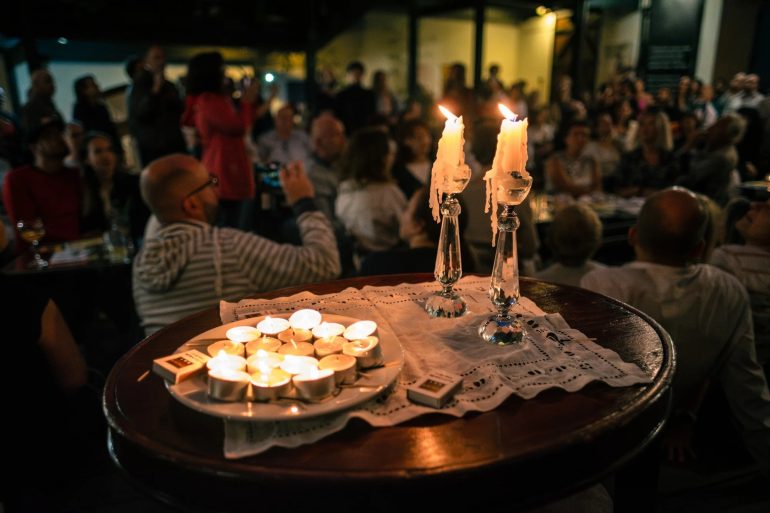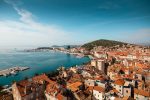This Thursday will see the opening of the third annual ŠTETL FEST, the largest festival of Jewish culture in the Czech Republic. From 29 August to 1 September, more than 110 exhibitions, concerts, discussions, and theatre performances will take place across the city, with the aim of celebrating and commemorating Jewish life in Brno.
The theme of this year’s festival, ‘Jewish Trauma in Art from Kafka to Barbie’, seeks to explore “the trauma of an uprooted people connected to tradition as well as the trauma of individuals examining their Jewish identity through artistic expression.” Many of the events will explore the transmission of trauma to future generations and “how Jewish trauma is transcribed into the lives of people in contemporary society.”
Speaking to Brno Daily, festival organiser Eva Yildizova said that the anniversaries of the deaths of Franz Kafka and Czech composer Pavel Haas had encouraged an examination of “how [these individuals] tried to get out of the closed community and integrate into the majority society, and how they reflected their Jewish identity in their artistic expression.”

The focus on Barbie is explained by the doll’s ‘Jewish roots’ (Ruth Handler, the creator of Barbie and founder of the Mattel company, was the daughter of Polish-Jewish immigrants to the United States), but also as a symbol of mass popular culture. As such, Kafka’s writing and Barbie have, in different ways, posed similar questions: “What does society expect from us? Are we good enough to be recognized and accepted by society? What are we willing to sacrifice for such recognition? How do the demands and requirements of mainstream society affect us and our self-awareness?”
The first ŠTETL FEST took place in 2022, and has since grown in size, with double the number of events taking place the subsequent year, and thousands more attendees. Yildizova, a long-standing member of Brno’s Jewish community and director of the Goose on a String Theatre (Divadlo Husa na provazku), said that inspiration for the festival began with the view that more needed to be done to educate Brno residents about the Jewish history of the city.
“We also notice(d) that there are a lot of people with Jewish roots in Brno who do not claim their identity, but can easily learn about Judaism at the festival,” she added. “For this reason, we founded the association ŠTETL, which also functions as a year-round centre of Jewish culture.”
The October 7 attacks and ongoing violence in Gaza in which, Yildizova says, “on both sides of the conflict we see a very traumatised civilian population, which unfortunately is not being listened to by the political leaders” also prompted a focus on collaboration with “Middle East experts on visions for a peaceful future in the region. The festival will also host Rabbi Herschel Glück from England, the founder of the Muslim-Jewish Forum, who has been working for 24 years to build respectful and cooperative cohabitation between the two communities.”
A recurring motif throughout the years of the ŠTETL FEST has been the concept of ‘Returns to Brno’, in a city that was for a long period the largest Jewish community in Moravia. By 1930 the Jewish population stood at 10,202, and fulfilled an important role in Brno’s cultural and economic life. During the Holocaust, around 13,000 Jews were deported from Brno and its surrounding areas, and by 1948 the population had been reduced to 1,033. The Soviet ‘normalisation’ of 1968 also led to more departures: today the community stands at about 300.

Since its inception, organisers of the festival have therefore placed great emphasis on searching for the families and relatives of the pre-war Brno Jewish community. As such, Yildizova explained, “each year at the festival we [remember] the story of one of these families and invite their descendants to visit the city of Brno. This year, the descendants of the Bloch family, who built a leather production factory on Rybářská, will come.”
In addition to Rabbi Glück, notable guests at ŠTETL FEST include Israeli author and playwright Sarah Blau, “a prominent voice in Israeli religious literature…(whose) refreshing perspective, dark humour, and literary talent have secured her a significant place among the new generation of world authors.” Blau will be taking part in a discussion at Kino Art on Friday 30 August at 3:30pm. Yildizova has also encouraged everybody to attend the ‘Barbie Dream’ event on Saturday evening as an opportunity to give festival-goers “a chance to have fun, dance…and to be themselves. So, you don’t have to wear pink. Just bring a good mood.”
The festival will begin on Thursday morning, with the laying of a Stolperstein for the Bloch and Ekstein families during a ceremony at the Bloch Villa. A range of free and ticketed events will run throughout the four-day programme, as well as a series of exhibitions open every day. Full details of the festival can be found on the website, as well as a list of English-language events, including time and location.







